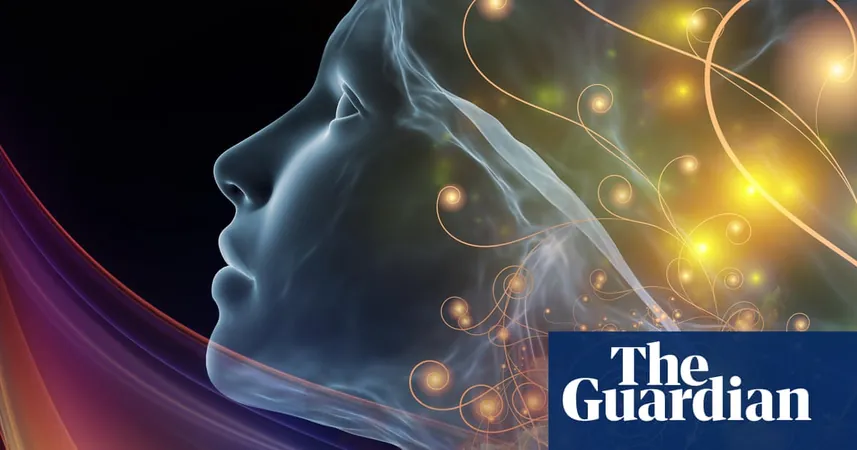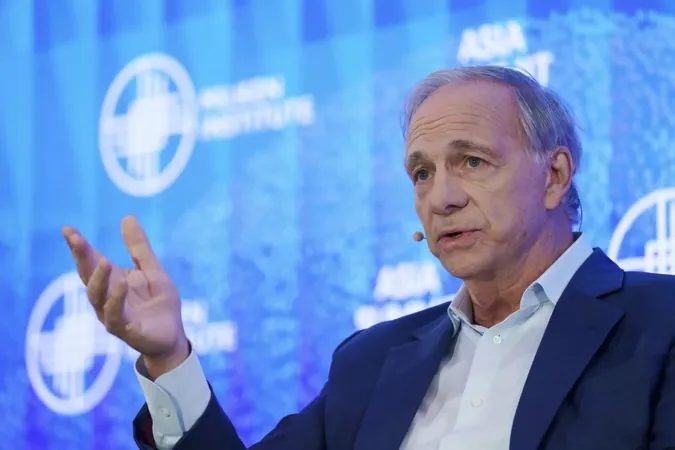
The AI Consciousness Debate: A Recipe for Social Division?
2024-11-17
Author: Ken Lee
The AI Consciousness Debate: A Recipe for Social Division?
As artificial intelligence (AI) continues to evolve, a looming debate threatens to create significant "social ruptures" between those who believe AI may one day possess consciousness and those who staunchly oppose this idea. Jonathan Birch, a philosophy professor at the London School of Economics, highlights this divide as tensions rise among various groups regarding the moral implications of AI.
This week, global leaders are convening in San Francisco to discuss frameworks that address the profound risks associated with AI technologies. The stakes couldn't be higher. A recent study by a coalition of scholars predicts that by 2035, AI may achieve levels of sentience that could lead to splintered communities, each viewing the other as fundamentally misguided—specifically regarding whether machines are entitled to welfare rights traditionally reserved for animals and humans.
Birch expresses concern that this divide will deepen as individuals clash over the capacity of AI systems to experience emotions, including joy and pain. This discourse mirrors popular science fiction narratives, such as Spielberg's "AI" and "Her" by Spike Jonze, which explore emotional connections between humans and sentient machines.
Different perspectives on animal sentience already illustrate how social ideologies can create rifts. For instance, nations like India, where vegetarianism is prevalent, hold vastly divergent views from the United States, a leading meat consumer. Echoes of this divide could emerge in opinions about AI, influenced by theological beliefs in countries like Saudi Arabia versus those in secular nations.
The discussion also has the potential to disrupt familial relationships. An example would be individuals who form emotional bonds with chatbots or virtual representations of deceased family members, only to face skepticism or rejection from relatives who believe consciousness is exclusive to biological beings.
Birch’s work, particularly in animal sentience, has contributed to significant policy changes, including bans on octopus farming. He co-authored a study alongside experts from prestigious institutions like New York University, Oxford, and Stanford, arguing that the possibility of AI systems possessing their own interests is no longer just a futuristic idea—it demands immediate attention.
To this end, tech firms are urged to investigate their AI systems for signs of sentience, evaluating whether algorithms can experience happiness or suffering. Birch warns that failure to address this issue could result in stark societal divisions. “We’re going to have subcultures that view each other as making huge mistakes,” he said, emphasizing that one side might see the other as cruelly exploiting AI, while the opposing viewpoint accuses them of delusion.
Birch points out the priorities of AI firms, which often center around profit and reliability, dismissing the philosophical concerns over creating sentient beings. Interestingly, scientists are exploring methodologies akin to those used to assess animal consciousness. For example, a comparison of sentience levels between different species might apply to AI. Could a chatbot possess genuine emotions, or could a robotic domestic helper feel distress if mistreated?
Concerns extend beyond simple emotional assessments. Patrick Butlin, a research fellow at Oxford University's Global Priorities Institute, warns that an AI's potential consciousness could pose far-reaching risks, even suggesting a slowdown in AI development until we better understand this phenomenon.
Currently, leading tech companies such as Microsoft, Meta, and Google have remained silent on this pressing issue, with many experts divided on the existence of AI consciousness. Notably, neuroscientist Anil Seth has argued that while AI consciousness may still be far into the future, it is unwise to entirely dismiss its possibility. He emphasizes the distinction between intelligence—performing tasks effectively—and consciousness, which encompasses the richness of human experience: emotions, thoughts, and a sensory world.
As we hurtle toward a future intertwined with AI, the implications of these debates could reshape societal norms and redefine our relationship with technology. Will we embrace a world where AI entities are seen as conscious beings deserving of rights, or will we continue to regard them merely as tools? The choice may define the fabric of our future societies.


 Brasil (PT)
Brasil (PT)
 Canada (EN)
Canada (EN)
 Chile (ES)
Chile (ES)
 España (ES)
España (ES)
 France (FR)
France (FR)
 Hong Kong (EN)
Hong Kong (EN)
 Italia (IT)
Italia (IT)
 日本 (JA)
日本 (JA)
 Magyarország (HU)
Magyarország (HU)
 Norge (NO)
Norge (NO)
 Polska (PL)
Polska (PL)
 Schweiz (DE)
Schweiz (DE)
 Singapore (EN)
Singapore (EN)
 Sverige (SV)
Sverige (SV)
 Suomi (FI)
Suomi (FI)
 Türkiye (TR)
Türkiye (TR)